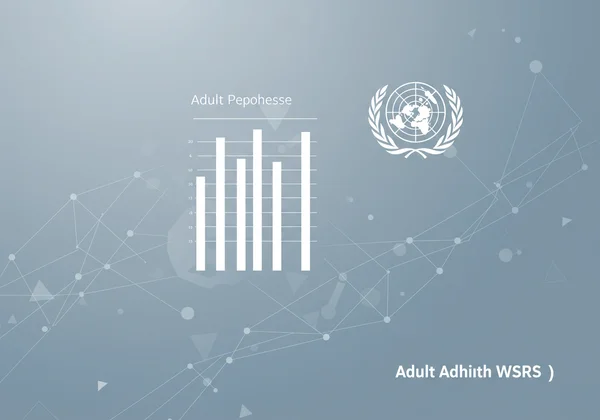ASRS Score: Your Adult ADHD Assessment & Self-Assessment Guide
August 10, 2025 | By Genevieve Hale
Feeling overwhelmed by constant challenges with attention, organization, or impulsivity? You're not alone. Many adults silently wonder if their lifelong struggles might be linked to something more specific, like Attention-Deficit/Hyperactivity Disorder (ADHD). Ever wondered if your daily struggles with focus could be something more? The Adult ADHD Self-Report Scale (ASRS) is a powerful, science-backed tool designed to help you on this journey of self-discovery. This guide will walk you through what the ASRS is, how to interpret its scores, and how it can be your courageous first step towards clarity. Ready to learn more? You can take the first step with our assessment today.

Understanding the ASRS ADHD Test: Origin & Purpose
The Adult ADHD Self-Report Scale (ASRS) is a questionnaire designed to help adults recognize the signs and symptoms of ADHD. It’s not just a random quiz; it’s a carefully constructed screening instrument. Think of it as a preliminary conversation starter—a way to gather information about your own experiences in a structured format. Its primary purpose is to help you identify whether you might benefit from a more formal evaluation by a healthcare professional.
This assessment helps bridge the gap between initial uncertainty and seeking professional insight. By asking targeted questions about real-life situations, it provides a clearer picture of how potential ADHD symptoms may be affecting your work, studies, and personal life. It's a confidential and accessible way to begin exploring your attention patterns.
The WHO Connection: Why the ASRS Matters
To understand the credibility of the ASRS, it’s important to know its origin. The ASRS was developed in conjunction with the World Health Organization (WHO) and a group of leading psychiatrists and researchers. This WHO ASRS connection is significant because it means the scale is grounded in extensive research and aligns with established diagnostic criteria, such as those found in the Diagnostic and Statistical Manual of Mental Disorders (DSM-5). This isn't just a trendy online quiz; it's a globally recognized screening tool. Its development by such a reputable body ensures that the questions you answer are relevant, meaningful, and based on a deep understanding of adult ADHD.

Who is the Adult ADHD Self-Report Scale For?
As the name suggests, the Adult ADHD Self-Report Scale is specifically for adults (typically 18 years and older). It’s designed for individuals who have been questioning their own behaviors and challenges for some time. This could be the college student struggling to meet deadlines, the professional who feels disorganized at work despite their best efforts, or any adult who finds it difficult to relax, focus on tasks, or manage impulsive decisions. If you've ever felt like you're working twice as hard as your peers just to stay on track, this assessment is designed for you. It serves as a valuable starting point for the adult ADHD assessment process.
Decoding Your ASRS Scoring: What the Numbers Mean
The real power of the ASRS lies in its scoring system, which translates your personal experiences into measurable data. The questionnaire is typically divided into two parts, each serving a distinct function in the screening process. Understanding how your ASRS scoring works can demystify the results and empower you to take the next step. While our platform provides personalized AI-driven insights that go beyond the numbers, knowing the basics is incredibly helpful. You can get a sense of your patterns by taking our free online test.
Understanding Part A: Key Symptom Indicators
Part A of the ASRS is the initial screener. It consists of six questions that are considered the most critical symptom indicators for adult ADHD. These questions probe the frequency of core symptoms, such as difficulty finishing projects, trouble with organization, and avoiding tasks that require sustained mental effort. A certain number of "yes" responses in this section strongly suggests that your symptoms are consistent with ADHD and that a further look is warranted. It acts as a quick, effective filter to identify individuals who are highly likely to have the disorder.
Understanding Part B: Assessing Impairment Impact
If your score on Part A indicates potential ADHD, Part B delves deeper. This section contains twelve additional questions that explore a wider range of symptoms and their frequency. More importantly, it helps in assessing impairment impact—that is, how significantly these symptoms interfere with your daily life. It asks about restlessness, interrupting others, and feeling overwhelmed. The scores from this part provide a more nuanced understanding of your challenges, painting a fuller picture for you and any healthcare provider you may consult later.
Interpreting Common ASRS Score Ranges & Their Implications
Your final ASRS score is calculated based on your responses across both parts. While scoring methods can vary slightly, a higher score generally indicates that your reported symptoms are more frequent and consistent with an ADHD profile. It’s crucial to remember that a high score is an indicator, not a verdict. It suggests that your experiences align with those of many adults who have ADHD. It does not, however, account for other potential causes for your symptoms, such as anxiety, depression, or other conditions, which is why professional consultation is so important.

Beyond the Score: Your Next Steps After an Adult ADHD Self-Assessment
Receiving your ASRS score is not the end of the journey—it's the beginning. The result is a piece of valuable information, a clue that helps you decide what to do next. An adult ADHD self-assessment is a tool for empowerment, giving you the data and confidence to move forward in a way that’s right for you. It’s about taking control of your narrative and seeking the support you deserve.
ASRS: A Screening Tool, Not a Diagnosis
This is the most important takeaway: the ASRS is a screening tool, not a diagnostic instrument. Only a qualified healthcare professional, such as a psychiatrist, psychologist, or primary care physician, can provide a formal ADHD diagnosis. A diagnosis involves a comprehensive clinical evaluation that may include interviews, a review of your medical history, and potentially other assessment tools. Think of your ASRS results as the organized notes you bring to a doctor's appointment—they provide an excellent, evidence-based starting point for a productive conversation. Get your personalized report to prepare for that conversation.
When to Seek Professional Guidance Following Your ASRS
If your ASRS score indicates a high likelihood of ADHD, it is strongly recommended that you seek professional guidance. A report from an online tool can be an invaluable asset to share with a professional. It summarizes your experiences and shows that you have proactively investigated your concerns. This can make the diagnostic process smoother and more efficient. A formal diagnosis is the gateway to understanding treatment options, which may include therapy, coaching, medication, or lifestyle adjustments tailored to your unique needs.
Ready for Clarity? Your Next Steps After an ADHD Self-Assessment
The Adult ADHD Self-Report Scale is more than just a questionnaire; it's a key that can unlock a deeper understanding of yourself. It provides a structured, evidence-based way to explore the challenges you've been facing and validates your feelings that something might be amiss. By translating your experiences into a clearer picture, it empowers you to take the next, crucial step.
Your journey to clarity doesn't have to be overwhelming or confusing. It can start right here, right now, with a simple, confidential, and reliable tool. Are you ready to gain personalized insights into your attention and focus? Start your online ADHD assessment and begin your path toward understanding.
Frequently Asked Questions About ADHD Assessments
What is the typical assessment for ADHD?
A typical formal ADHD assessment is a comprehensive process conducted by a healthcare professional. It usually includes a detailed clinical interview about your symptoms, developmental history, and daily functioning. It may also involve standardized rating scales (like the ASRS or Conners' scales), input from family members, and a review of past academic or work records to establish a pattern of behavior.
What is the most accurate ADHD test?
There is no single "most accurate" test, as a reliable diagnosis comes from a multi-faceted evaluation, not just one score. However, tools like the ASRS are highly regarded and scientifically validated screening instruments. The accuracy of a diagnosis is enhanced when a clinician combines results from a respected tool with a thorough clinical interview. Our platform uses trusted scales like the ASRS as a foundation, which you can try our free tool today.
Is it worth getting tested for ADHD?
Absolutely. For many adults, getting tested is a life-changing experience. It can reframe a lifetime of struggles—not as personal failures ("I'm lazy" or "I'm not smart enough")—but as the symptoms of a treatable neurological condition. An assessment can lead to a formal diagnosis, which opens the door to effective strategies, treatments, and a community of support, ultimately improving your quality of life.
Is an online ADHD self-assessment a formal diagnosis?
No, an online ADHD self-assessment is not a formal diagnosis. It is a preliminary screening tool designed to indicate whether you show symptoms consistent with ADHD. On our platform, we are very clear that our service is a first step. The report from our adult ADHD assessment is designed to be a bridge—a helpful document you can take to a qualified professional to begin the conversation about a formal diagnosis and treatment plan.
Disclaimer: This article is for informational purposes only and does not constitute medical advice. It is not a substitute for professional medical advice, diagnosis, or treatment. Always seek the advice of your physician or other qualified health provider with any questions you may have regarding a medical condition.